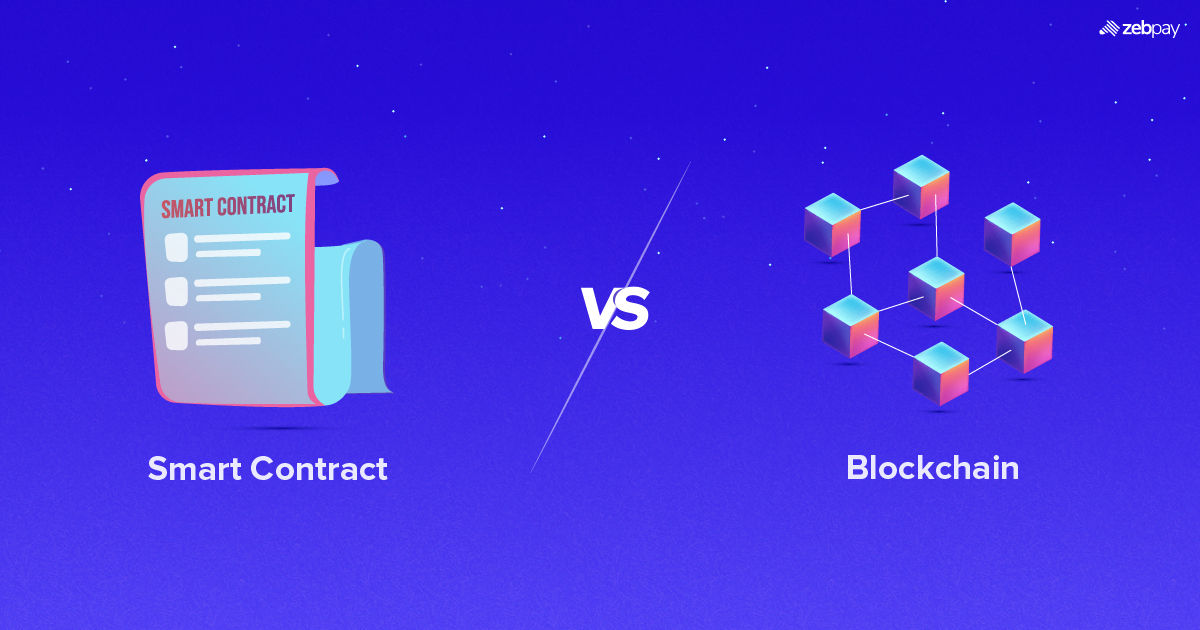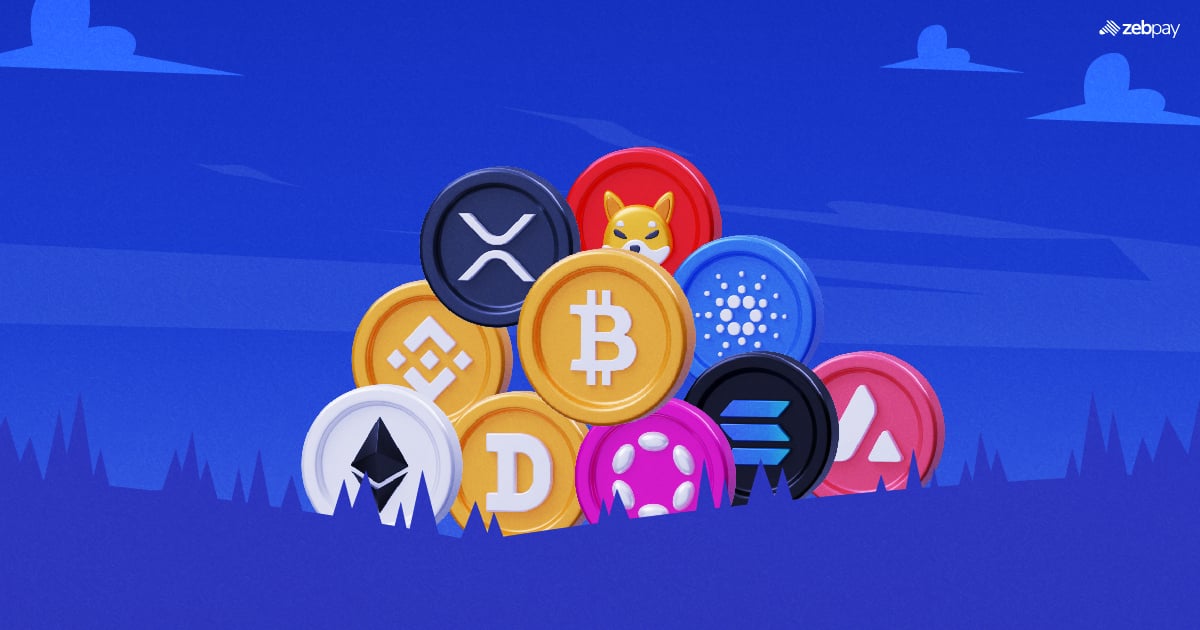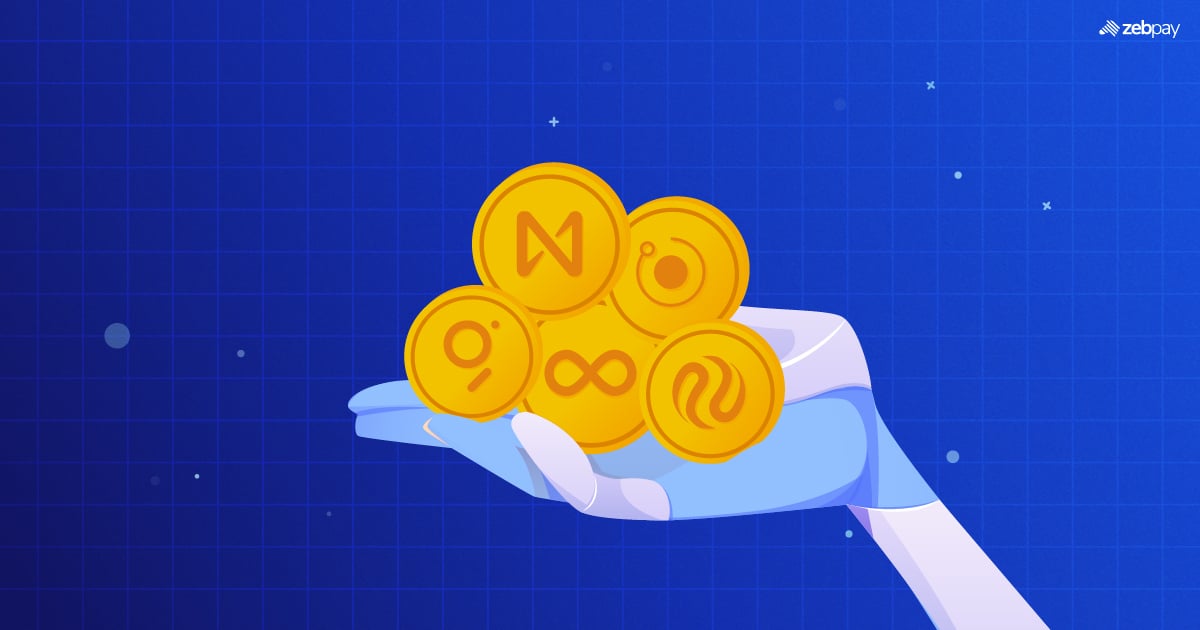Blockchains are widely considered to be one of the most important innovations in technology today. It has applications from the crypto industry to data storage and even application development. You may have also heard of smart contracts and that they are essential to the functionality of blockchains. But what is the difference between blockchains and smart contracts?
Defining Smart Contracts and Blockchains
What are Blockchains?
Blockchains are a new way to efficiently store and access data. Also known as distributed ledger technology, blockchains are publicly available records of transactions that can be accessed by anyone, anywhere.
A blockchain is thus a shared ledger of transactions where data cannot be altered or deleted once created. It provides a transparent and accessible method to track information, along with the guarantee that the data available is accurate and has not been changed.
What are Smart Contracts?
Smart contracts can be thought of as software programs on a blockchain. They automatically run when their conditions are met. They can be used by blockchain projects to automate tasks such as agreements and the transfer of assets without the need for a trusted third party.
How does Blockchain Work?
Distributed Ledger Technology
A key aspect of blockchains is their decentralisation. The database is not stored on one single system. Instead, it is available to any device on the network. All blockchain users can freely access the network and its information.
Blockchains do not process each transaction individually. They are recorded as encrypted “blocks” of data that must be validated by other users before being finalised. Each block’s encryption is based on the block that came before it, thus forming a chain.
Read more: On-Chain vs Off-Chain
Blockchain Use Cases
One of the most popular uses for blockchains is crypto. Crypto tokens are a form of digital asset. They are powered by the blockchain as this is what allows crypto transactions to be recorded and validated.
Alternatively, blockchains can also be used for secure data storage by companies. In this situation, companies can operate a private blockchain where data is stored across multiple different computers and locations. Access to the network can be restricted to authorized users, ensuring sensitive information is kept private.
How do Smart Contracts Work?
Execution of Smart Contracts
As mentioned above, smart contracts are sets of code that execute automatically when the requirements are met. To create a smart contract, you must have some programming experience. It allows you to undertake more complex tasks on a blockchain than simple token exchanges.
Smart contracts eliminate the need for lengthy verification and paperwork to be completed. There is no need for a third party to conduct these processes as the blockchain can automatically ensure the contract is honoured by all parties involved.
Smart Contract Use Cases
Smart contracts are mostly used in decentralized application (dApp) development. They can be used to automate payments or validation of ownership on a blockchain. Other applications also include supply chain management, where shipments that do not follow the schedule are automatically flagged for review.
The versatility of smart contracts lends itself to applications across a broad range of industries and requirements.
Comparison of Smart Contracts and Blockchain

Blockchain vs Smart Contract: Similarities and Differences
Similarities
- Wide Applications – Both blockchains and smart contracts are highly versatile tools. They can be applied to a range of industries like finance, supply chains, music and movies and even medicine.
- Decentralised – Both technologies operate on a decentralised basis and do not require a central authority. This makes them highly efficient and eliminates middlemen from the equation.
On the other hand, their differences include
- Dependence – Blockchains are independent networks, while smart contracts are built on top of a blockchain. A smart contract is thus dependent on a blockchain.
- Ease of Use – It is easy to get started on using a blockchain. All you need is a crypto wallet and some tokens you wish to transfer. Meanwhile, smart contracts are more advanced features that may require more familiarity with the ecosystem.
Conclusion
Potential Impact of Smart Contracts and Blockchain
These technologies have already established themselves as disruptors in both the tech and finance spheres. A blockchain provides transparent and verifiable access to data while smart contracts eliminate middlemen and make systems far more efficient.
Future Development and Advancements in Technology
As the crypto industry receives more attention and engagement, so do the underlying technologies of blockchains and smart contracts. Fresh investment over the next few years will lead to improvements in scalability and the adoption of smart contracts in other applications too.
You can keep yourself up to date with the latest crypto news on ZebPay blogs. Begin your crypto trading journey today using ZebPay Singapore.







